-
 Bitcoin
Bitcoin $120400
1.77% -
 Ethereum
Ethereum $3615
7.90% -
 XRP
XRP $3.580
17.84% -
 Tether USDt
Tether USDt $1.001
0.06% -
 BNB
BNB $729.4
1.25% -
 Solana
Solana $179.9
5.04% -
 USDC
USDC $0.0000
0.01% -
 Dogecoin
Dogecoin $0.2311
8.22% -
 TRON
TRON $0.3226
4.04% -
 Cardano
Cardano $0.8490
12.85% -
 Hyperliquid
Hyperliquid $46.45
0.72% -
 Stellar
Stellar $0.4913
8.54% -
 Sui
Sui $4.027
2.00% -
 Chainlink
Chainlink $18.51
11.67% -
 Hedera
Hedera $0.2818
21.51% -
 Avalanche
Avalanche $24.03
7.40% -
 Bitcoin Cash
Bitcoin Cash $508.5
2.90% -
 Shiba Inu
Shiba Inu $0.00001496
3.24% -
 UNUS SED LEO
UNUS SED LEO $8.961
1.83% -
 Toncoin
Toncoin $3.264
3.13% -
 Litecoin
Litecoin $104.6
8.15% -
 Polkadot
Polkadot $4.389
6.11% -
 Uniswap
Uniswap $9.924
10.63% -
 Monero
Monero $337.9
0.49% -
 Pepe
Pepe $0.00001376
2.79% -
 Bitget Token
Bitget Token $4.830
2.46% -
 Ethena USDe
Ethena USDe $1.001
0.05% -
 Dai
Dai $1.000
0.02% -
 Aave
Aave $325.2
1.66% -
 Bittensor
Bittensor $423.7
-0.85%
What is Zero-Knowledge Proof (ZKP)?
Zero-knowledge proofs, a cryptographic tool, empower one party to demonstrate knowledge of a secret without revealing it, unlocking privacy-enhancing technologies and secure blockchain applications.
Feb 21, 2025 at 11:49 am
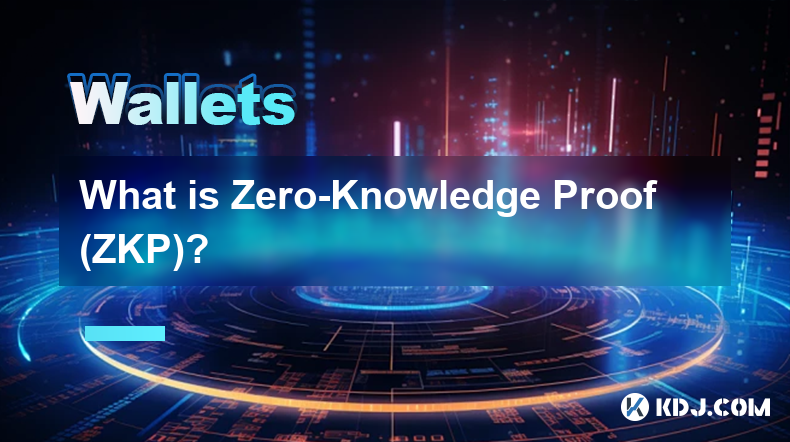
Key Points
- Zero-knowledge proofs are a cryptographic technique that allows one party to prove to another party that they know a secret without revealing the secret itself.
- Zero-knowledge proofs have a wide range of applications in cryptography, including privacy-enhancing technologies, anonymity networks, and blockchain.
- Several different types of zero-knowledge proofs exist, each with its own strengths and weaknesses.
What is Zero-Knowledge Proof (ZKP)?
A zero-knowledge proof (ZKP) is a cryptographic technique that allows one party (the prover) to prove to another party (the verifier) that they know a secret without revealing the secret itself. This is done by using a series of mathematical puzzles and challenges.
ZKPs have a wide range of applications in cryptography, including:
- Privacy-enhancing technologies: ZKPs can be used to create privacy-enhancing technologies that allow users to protect their sensitive data from unauthorized access. For example, ZKPs can be used to develop anonymous credentials that allow users to prove their identity without revealing their personal information.
- Anonymity networks: ZKPs can be used to create anonymity networks that allow users to communicate with each other without revealing their identities. For example, ZKPs can be used to develop onion routing networks, which allow users to send messages anonymously over the internet.
- Blockchain: ZKPs can be used to develop blockchain applications that are more scalable, secure, and private. For example, ZKPs can be used to develop zk-SNARKs, which are a type of ZKP that can be used to verify the validity of blockchain transactions without revealing the details of the transactions.
Types of Zero-Knowledge Proofs
There are several different types of zero-knowledge proofs, each with its own strengths and weaknesses. The most common types of ZKPs include:
- Interactive ZKPs: Interactive ZKPs require the prover and verifier to interact with each other in real time. This type of ZKP is typically used in applications where the verifier needs to be able to verify the prover's knowledge of the secret in a short amount of time.
- Non-interactive ZKPs: Non-interactive ZKPs do not require the prover and verifier to interact with each other in real time. This type of ZKP is typically used in applications where the verifier does not need to be able to verify the prover's knowledge of the secret in a short amount of time.
- Succinct ZKPs: Succinct ZKPs are a type of ZKP that is very efficient to verify. This type of ZKP is typically used in applications where the verifier needs to be able to verify the prover's knowledge of the secret many times.
How Zero-Knowledge Proofs Work
Zero-knowledge proofs work by using a series of mathematical puzzles and challenges. The prover generates a set of puzzles that the verifier must solve. The verifier then checks the prover's solutions to the puzzles to ensure that they are correct. If the prover's solutions are correct, the verifier is convinced that the prover knows the secret.
The following is a simplified example of how a zero-knowledge proof works:
- The prover generates a secret number.
- The prover generates a set of puzzles that are based on the secret number.
- The prover sends the puzzles to the verifier.
- The verifier solves the puzzles.
- The verifier checks the prover's solutions to the puzzles to ensure that they are correct.
If the prover's solutions are correct, the verifier is convinced that the prover knows the secret number. However, the verifier does not learn anything about the secret number itself.
Benefits of Zero-Knowledge Proofs
Zero-knowledge proofs have several benefits, including:
- Privacy: ZKPs allow users to prove their knowledge of a secret without revealing the secret itself. This can be very useful in applications where users need to protect their sensitive data from unauthorized access.
- Security: ZKPs are very secure. They are based on sound mathematical principles, and they have been proven to be resistant to attack.
- Efficiency: ZKPs are very efficient. They can be verified very quickly, even on low-powered devices.
FAQs
Q: What are some of the applications of zero-knowledge proofs?
A: Zero-knowledge proofs have a wide range of applications in cryptography, including privacy-enhancing technologies, anonymity networks, and blockchain.
Q: What are the different types of zero-knowledge proofs?
A: The most common types of zero-knowledge proofs include interactive ZKPs, non-interactive ZKPs, and succinct ZKPs.
Q: How do zero-knowledge proofs work?
A: Zero-knowledge proofs work by using a series of mathematical puzzles and challenges. The prover generates a set of puzzles that the verifier must solve. The verifier then checks the prover's solutions to the puzzles to ensure that they are correct. If the prover's solutions are correct, the verifier is convinced that the prover knows the secret.
Q: What are the benefits of zero-knowledge proofs?
A: Zero-knowledge proofs have several benefits, including privacy, security, and efficiency.
Disclaimer:info@kdj.com
The information provided is not trading advice. kdj.com does not assume any responsibility for any investments made based on the information provided in this article. Cryptocurrencies are highly volatile and it is highly recommended that you invest with caution after thorough research!
If you believe that the content used on this website infringes your copyright, please contact us immediately (info@kdj.com) and we will delete it promptly.
- Bitcoin, Crypto Wallets, and Security: Staying Safe in the Wild West of Digital Finance
- 2025-07-18 16:30:12
- Bitget Launchpool Heats Up with Caldera (ERA) Token Rewards!
- 2025-07-18 16:50:12
- XLM Bullish Chart: Analyst Sees Stellar Opportunity
- 2025-07-18 17:10:13
- Memeclip Presale: The 100x Potential CT Degens Are Buzzing About
- 2025-07-18 16:30:12
- Twitter, Investors, and PENGU Trade: Decoding the Signals
- 2025-07-18 17:10:13
- DeFi Liquidity on Fire: Kadena's Chainweb EVM Heats Up!
- 2025-07-18 17:15:13
Related knowledge
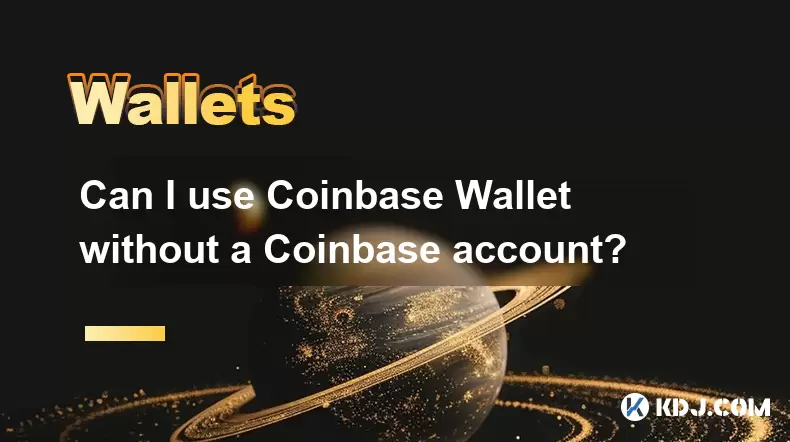
Can I use Coinbase Wallet without a Coinbase account?
Jul 18,2025 at 04:35am
What is Coinbase Wallet?Coinbase Wallet is a self-custodial wallet that allows users to store, send, and receive various cryptocurrencies directly on ...
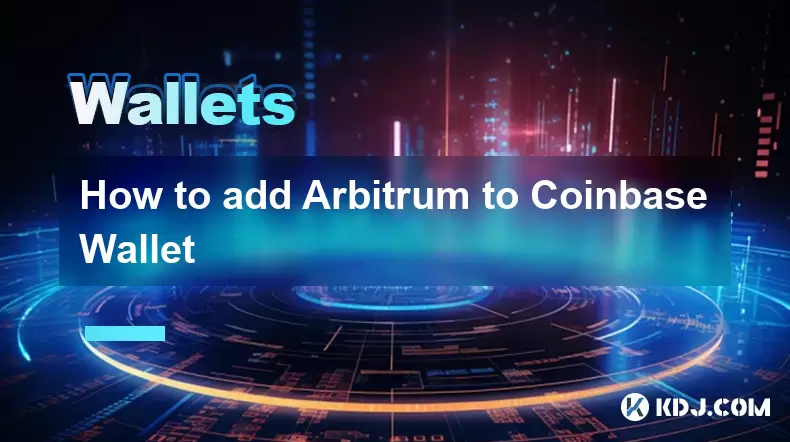
How to add Arbitrum to Coinbase Wallet
Jul 18,2025 at 03:00pm
Understanding Arbitrum and Its Integration with Coinbase WalletArbitrum is a layer-2 scaling solution developed by Offchain Labs to enhance the speed ...
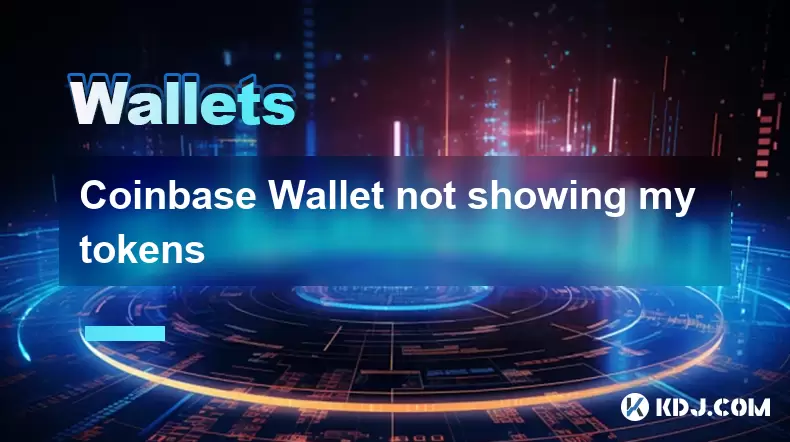
Coinbase Wallet not showing my tokens
Jul 18,2025 at 09:49am
Understanding Coinbase Wallet Token Display IssuesIf you're experiencing issues where Coinbase Wallet not showing my tokens, it can be frustrating, es...
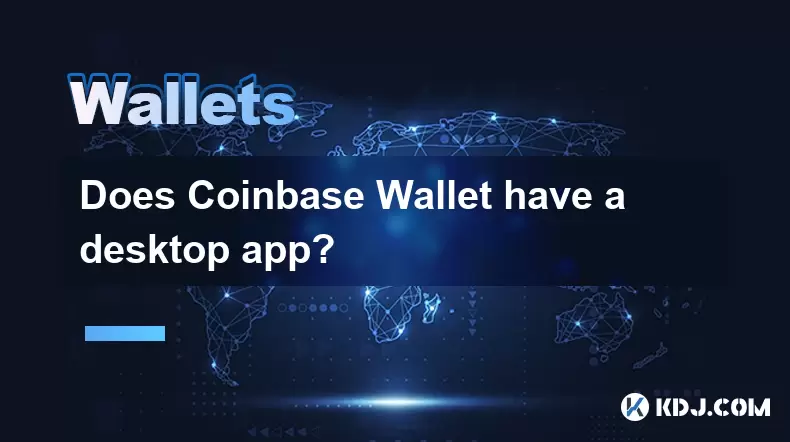
Does Coinbase Wallet have a desktop app?
Jul 18,2025 at 12:08am
Understanding Coinbase Wallet and Its Core FeaturesCoinbase Wallet is a non-custodial cryptocurrency wallet developed by Coinbase, one of the leading ...
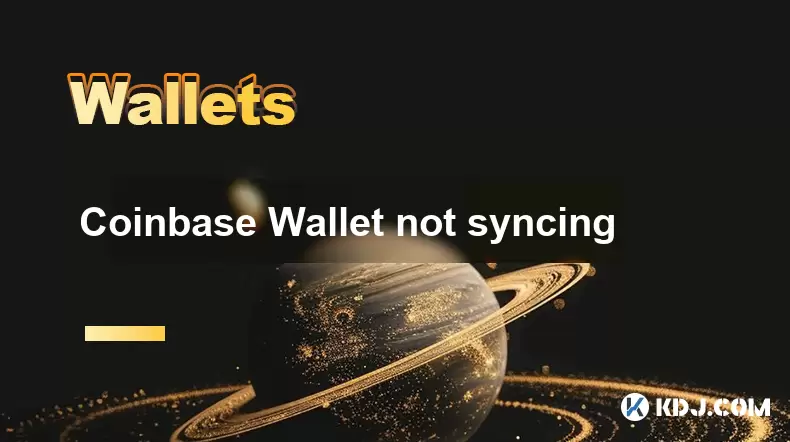
Coinbase Wallet not syncing
Jul 18,2025 at 07:49am
Understanding Coinbase Wallet Syncing IssuesWhen users encounter problems with Coinbase Wallet not syncing, it typically means that the wallet is unab...
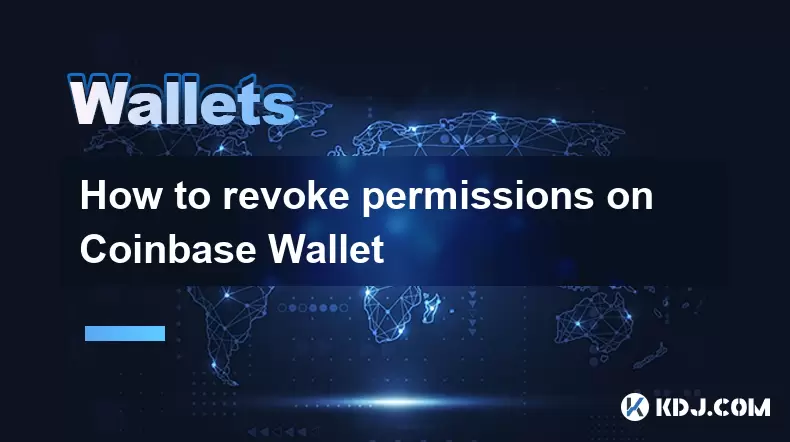
How to revoke permissions on Coinbase Wallet
Jul 18,2025 at 02:00am
What Does It Mean to Revoke Permissions on Coinbase Wallet?In the context of Coinbase Wallet, revoking permissions refers to removing access that dece...

Can I use Coinbase Wallet without a Coinbase account?
Jul 18,2025 at 04:35am
What is Coinbase Wallet?Coinbase Wallet is a self-custodial wallet that allows users to store, send, and receive various cryptocurrencies directly on ...

How to add Arbitrum to Coinbase Wallet
Jul 18,2025 at 03:00pm
Understanding Arbitrum and Its Integration with Coinbase WalletArbitrum is a layer-2 scaling solution developed by Offchain Labs to enhance the speed ...

Coinbase Wallet not showing my tokens
Jul 18,2025 at 09:49am
Understanding Coinbase Wallet Token Display IssuesIf you're experiencing issues where Coinbase Wallet not showing my tokens, it can be frustrating, es...

Does Coinbase Wallet have a desktop app?
Jul 18,2025 at 12:08am
Understanding Coinbase Wallet and Its Core FeaturesCoinbase Wallet is a non-custodial cryptocurrency wallet developed by Coinbase, one of the leading ...

Coinbase Wallet not syncing
Jul 18,2025 at 07:49am
Understanding Coinbase Wallet Syncing IssuesWhen users encounter problems with Coinbase Wallet not syncing, it typically means that the wallet is unab...

How to revoke permissions on Coinbase Wallet
Jul 18,2025 at 02:00am
What Does It Mean to Revoke Permissions on Coinbase Wallet?In the context of Coinbase Wallet, revoking permissions refers to removing access that dece...
See all articles

























































































